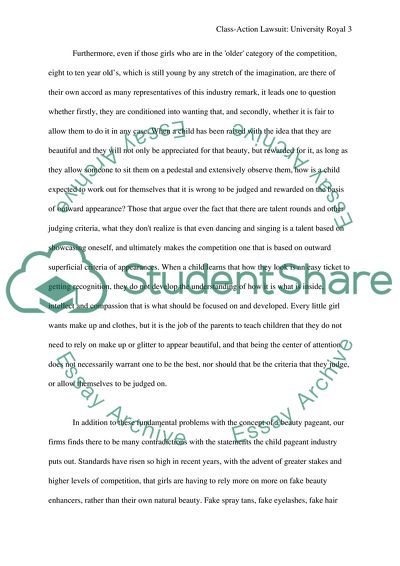Cite this document
(Class Action Lawsuit Against University Royal Beauty Pageants Coursework, n.d.)
Class Action Lawsuit Against University Royal Beauty Pageants Coursework. https://studentshare.org/law/1755067-compositon-1
Class Action Lawsuit Against University Royal Beauty Pageants Coursework. https://studentshare.org/law/1755067-compositon-1
(Class Action Lawsuit Against University Royal Beauty Pageants Coursework)
Class Action Lawsuit Against University Royal Beauty Pageants Coursework. https://studentshare.org/law/1755067-compositon-1.
Class Action Lawsuit Against University Royal Beauty Pageants Coursework. https://studentshare.org/law/1755067-compositon-1.
“Class Action Lawsuit Against University Royal Beauty Pageants Coursework”. https://studentshare.org/law/1755067-compositon-1.


